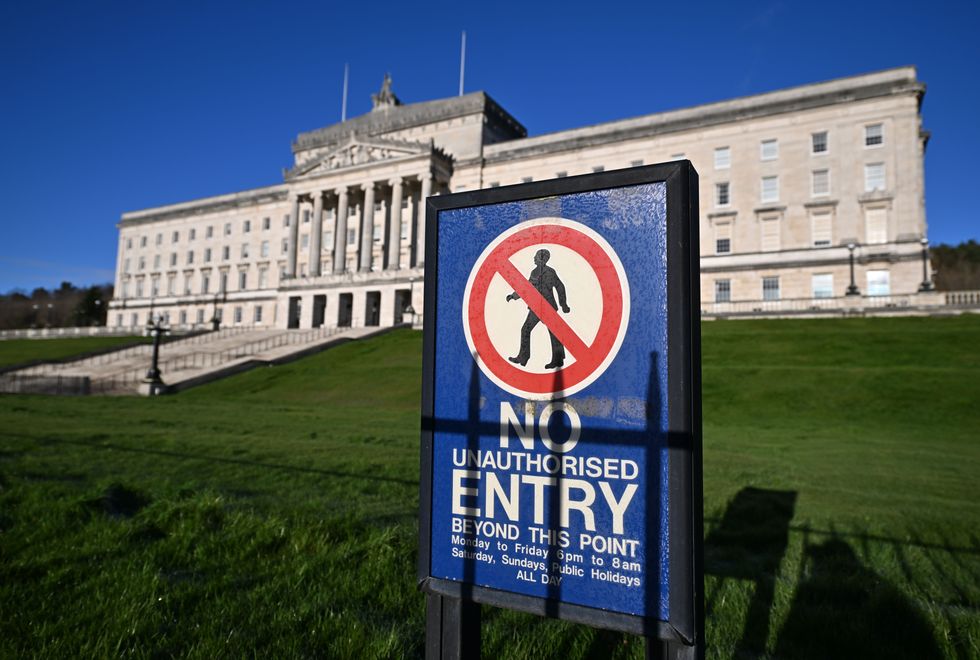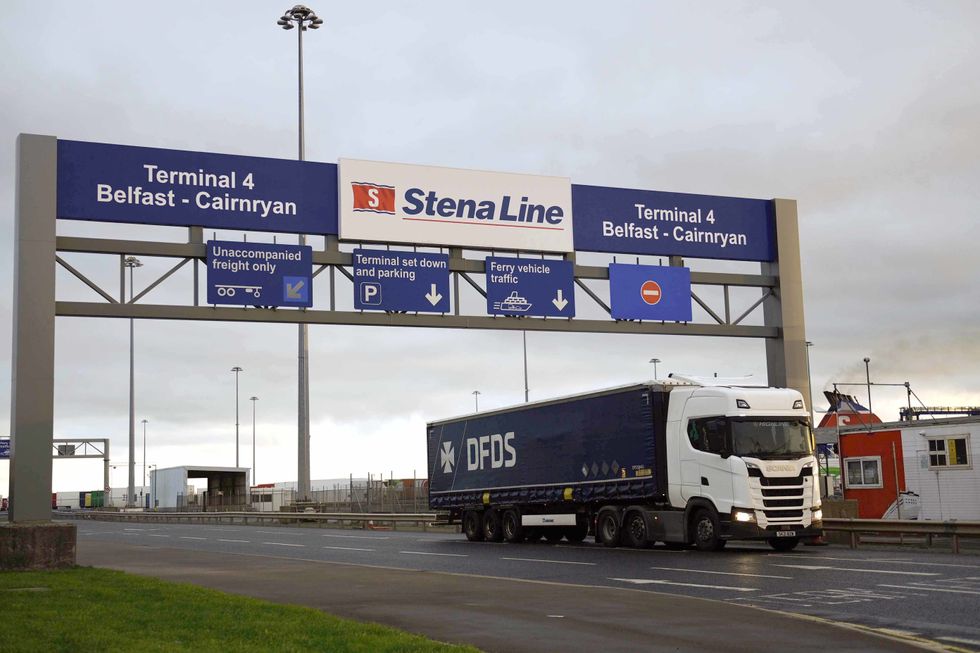WATCH NOW: Orange Order parades take place in Belfast as loyalists mark July 12
GB NEWS
The EU regulation would introduce new requirements for chemical product labels, including specifications for minimum font sizes and spacing rules
Don't Miss
Most Read
Trending on GB News
Unionists in Northern Ireland have launched a bid to block a controversial EU law from being implemented for the first time since Brexit.
The Democratic Unionist Party secured enough signatures to trigger the Stormont Brake mechanism after voicing concerns about the new EU chemical labelling regulations in Northern Ireland.
The DUP-led initiative marks the first attempt to use this oversight tool, which was established under the Windsor Framework.
DUP MLAs required the support of Ulster Unionist Party allies to surpass the 30 threshold needed to formally challenge the EU regulation.

Unionists trigger 'emergency' Brexit clause as DUP 'make no secret' about resisting EU overreach
PA
The move represents a significant test of the post-Brexit oversight mechanisms designed to protect Northern Ireland's interests.
DUP leader Gavin Robinson initiated the process amid concerns that the new Brussels legislation would create additional trade barriers between Great Britain and Northern Ireland.
The EU regulation in question, Regulation 2024/2865, would introduce new requirements for chemical product labels, including specifications for minimum font sizes and spacing rules.
"This would make current labels unusable for the majority of products," Robinson claimed. "Critically, these changes would not be required for products on the market in Great Britain."
LATEST DEVELOPMENTS: General views of StormontGETTY
General views of StormontGETTYThe impact could be substantial, with chemical trade flows between Great Britain and Northern Ireland valued at approximately £1billion annually.
Robinson added: "The DUP is focused on fully restoring Northern Ireland's place in the United Kingdom and its internal market.
"We have made no secret of the fact that we will use the Stormont Brake to full effect in the pursuit of our overall objectives."
Industry representatives have also warned that the updated EU law would create additional friction in cross-Irish Sea trade.

Doug Beattie (front centre), leader of the Ulster Unionist Party (UUP) stands with party candidates following the party's manifesto launch at the Stormont Hotel in Belfast
PA
To activate the Stormont Brake mechanism, a minimum of 30 MLAs from at least two different parties must sign a petition to refer a proposed law change to the UK Government.
Once triggered, the UK Government assesses the proposed change's impact on Northern Ireland and retains the power to veto its application in the region.
The process could be lengthy and, if deemed appropriate by the Government, will involve direct negotiations with the EU to find a resolution.
The framework and its predecessor, the Northern Ireland Protocol, require customs checks and paperwork for goods moving from Great Britain into Northern Ireland.

Lorries carrying goods in Northern Ireland
PA
Under these arrangements, designed to prevent a hard border on the island of Ireland, Northern Ireland continues to follow numerous EU trade and customs rules.
This has proven deeply contentious among Unionists, who argue the system undermines Northern Ireland's position within the United Kingdom.
Earlier this month, Stormont voted to maintain Northern Ireland's post-Brexit trading arrangements, despite unified opposition from Unionist assembly members.
Supporters of the controversial framework within the Assembly maintain it protects Northern Ireland from adverse Brexit-related economic impacts.








